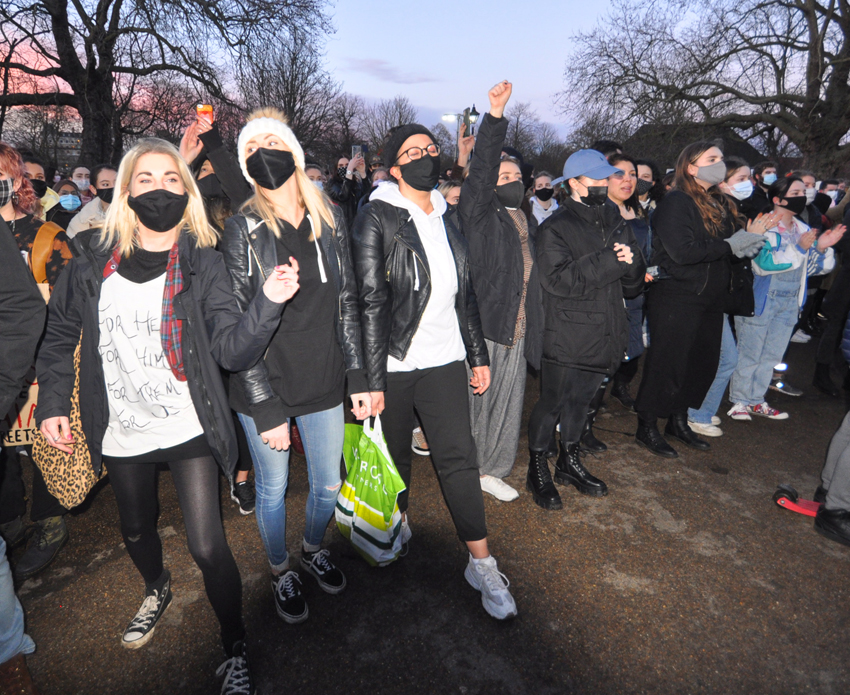
THE Metropolitan Police breached the rights of the organisers of a planned vigil for Sarah Everard, two judges have ruled.
The group had to cancel the event after the Met said it would be illegal to stage it under lockdown restrictions.
However, thousands of people attended a gathering on Clapham Common in south London to pay their respects to Ms Everard, who was murdered by a serving Met officer, Wayne Couzens.
The vigil, on 13th March, saw clashes between police and some of those there.
At a two-day hearing at the High Court in January, Jessica Leigh, Anna Birley, Henna Shah and Jamie Klingler argued that decisions made by the force in advance of the planned vigil amounted to a breach of their right to freedom of speech and assembly.
In a statement after the ruling, the women’s solicitor Theodora Middleton said: ‘Today’s judgment is a victory for women.
‘Last March, women’s voices were silenced. Today’s judgment conclusively shows that the police were wrong to silence us.
‘The decisions and actions by the Met Police in the run-up to the planned vigil for Sarah Everard last year were unlawful and the judgment sets a powerful precedent for protest rights.
‘We came together one year and one day ago to organise a vigil on Clapham Common because Sarah Everard went missing from our neighbourhood. We felt sad and afraid.
‘We were angry that women still weren’t safe and we were tired of the burden to stay safe always weighing on our shoulders.”
Yesterday, Lord Justice Warby and Mr Justice Holgate released their ruling in favour of arguments made by the four women, who founded Reclaim These Streets (RTS) and planned the vigil, finding that the Met’s actions were ‘not in accordance with the law’.
In a summary of the ruling, Lord Justice Warby said the Met had ‘failed to perform its legal duty to consider whether the claimants might have a reasonable excuse for holding the gathering’.
He added: ‘The relevant decisions of the (Met) were to make statements at meetings, in letters, and in a press statement, to the effect that the Covid-19 regulations in force at the time meant that holding the vigil would be unlawful.
‘Those statements interfered with the claimants’ rights because each had a ‘chilling effect’ and made at least some causal contribution to the decision to cancel the vigil.’
Lawyers representing the four women told the court that notes of a Met gold command meeting the day before the proposed event included a statement that ‘we are seen as the bad guys at the moment and we don’t want to aggravate this.’
Tom Hickman QC said: ‘The most significant “threat” identified was not public health but the perceived reputational risk to the (force), including in the event they were perceived to be permitting or facilitating the vigil.’
The Met argued there was no exception for protest in the coronavirus rules at the time and it had ‘no obligation to assess the public health risk.
At the time Met Commissioner Dame Cressida Dick faced calls for her to resign over the actions of her officers at the vigil.
The women cancelled the vigil after being told by the force they would face fines of £10,000 each and possible prosecution if it went ahead, the court heard.
The spontaneous vigil that took place instead led to the force being heavily criticised for its actions.
Assistant Commissioner Louisa Rolfe said the Met was ‘considering the judgment very carefully before deciding whether to appeal’.